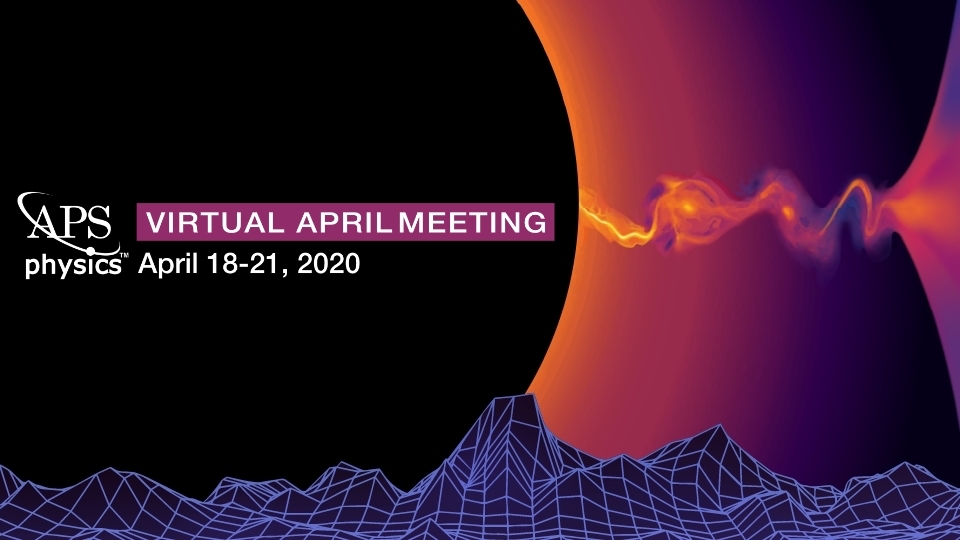Imagine: you are expecting more than 1,000 colleagues to travel thousands of miles to attend your conference but suddenly travel becomes impossible. What to do? This was the problem facing organisers of the April 2020 meeting of the American Physical Society (APS) when COVID-19 was officially designated a global pandemic one month before the conference was due to start.
The APS conference organising committee decided to move the entire conference on-line and make it free to register. Amazingly, registration for the conference leapt from the expected 1,200 to 7,267 according to Hunter Clemens, Director of APS Meetings. That’s a huge step forward in terms of open access science and giving more young researchers opportunity to engage with leaders in their fields of study.
At 8:30 am, bright and early on Saturday 18th April the first plenary session opened with the theme “Exploring the Cosmos”. Final sessions on Tuesday afternoon 21st April addressed the theme “Unconventional Ideas in Theory”. As an unconventional idea in practice, the open access APS meeting was a bold undertaking and one that demonstrated the scientific community can increase participation while decreasing the adverse impact on our planet.
APS decided not to cut the academic program but to extend it. Poster presenters could each take advantage of multiple video streams to make 5 minute “elevator-pitch” presentations of their work. It’s a great way for less experienced presenters to hone their skills. The format also lends itself to continuing discussions with new contacts that don’t rely on reading bits of paper with scrawled email addresses or Twitter handles.
Use of Twitter throughout the conference gave the feeling of being directed through the program, which is something we can use in other on-line meetings.
Time for a break! Grab some coffee☕or a snack and take this time to network with fellow #apsapril attendees. https://t.co/TwLQJbascJ pic.twitter.com/W6qdXbHEjj
— APS Physics Meetings (@APSMeetings) April 20, 2020
Twitter was also used to good effect to get a feel of overheard and shared conversations, just like you get when you break for coffee after a session.
American Physical Sciences are not just investigative and innovative scientists. They are showing how we can use today’s communication tools to flock together, even when our wings have been collectively clipped!
Corbeau would love to hear of other experiences of successful virtual conferences during lock-down.
